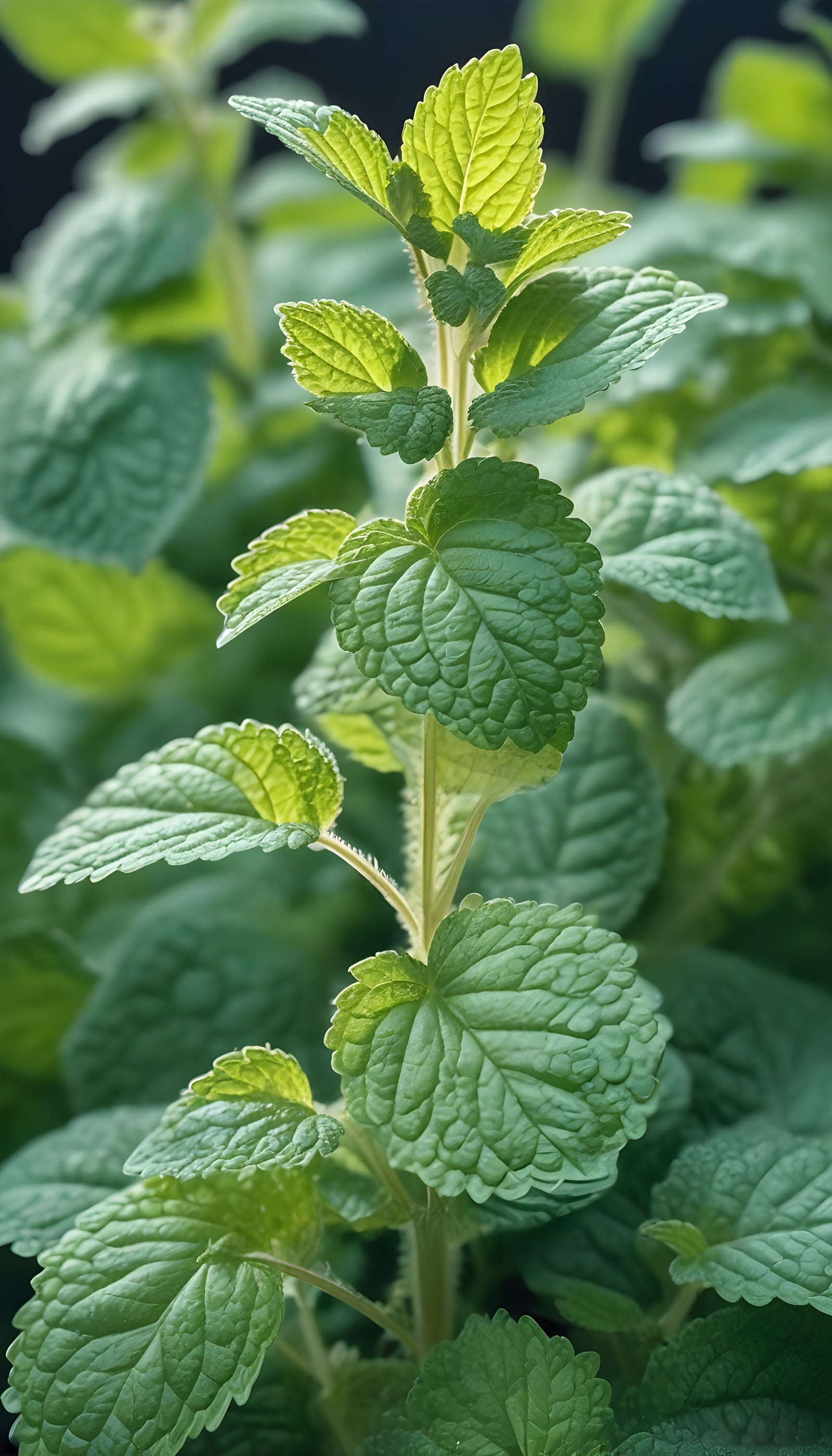Lemon balm - properties and healing effects

Lemon balm (Melissa officinalis) is a lemon-scented herb that comes from the same family as mint. Lemon balm has been known for centuries as a herbal remedy with a calming effect. It is characterized by high safety in use, which makes it an ideal replacement for synthetic agents. In addition, lemon balm is rich in antioxidants. Lemon balm leaves are used not only for sleeping and calming down. Another common use is to improve digestion, relieve menstrual pain or help with digestive problems. Lemon balm is also recommended for improving memory and concentration and for nausea during pregnancy. The oil obtained from lemon balm has strong bactericidal and antifungal properties.
It may help reduce anxiety and relieve stress.
Lemon balm is mainly associated with calming properties. The antidepressant and nerve-soothing effect is attributed to terpene aldehydes. Research shows that lemon balm facilitates falling asleep, helps soothe the nerves and can effectively act as a substance that reduces anxiety and stress levels.
It can improve concentration and memory.
A few studies have found that lemon balm may help improve cognitive function and decrease agitation in people with Alzheimer's disease.
It may help with insomnia and other sleep disorders.
Research has shown that when combined with herbs like valerian, lemon balm helps improve sleep. Also, drinking lemon balm tea can help with insomnia.
It may help with digestive problems.
Lemon balm has a digestive, choleretic and cholagogenic effect. May help relieve indigestion. If you experience frequent abdominal pain and discomfort, lemon balm may have a positive effect on your digestion.
It may help with menstrual pain.
The compound rosmarinic acid in lemon balm may help minimize the severity of menstrual symptoms like cramps and fatigue and premenstrual syndrome (PMS).
It has antiviral, fungicidal and bactericidal properties.
Lemon balm has strong antiviral properties. It contains tannin and phenolic acids, so it can be successfully used in the treatment of cold sores. It can also be used in scalp diseases because it has anti-inflammatory, anti-seborrheic and anti-dandruff properties.
Lemon balm is considered a safe herb. It does not show any serious side effects. Nevertheless, it should be remembered that each body is different and some people may experience drowsiness, stupor or poor concentration after taking lemon balm.






